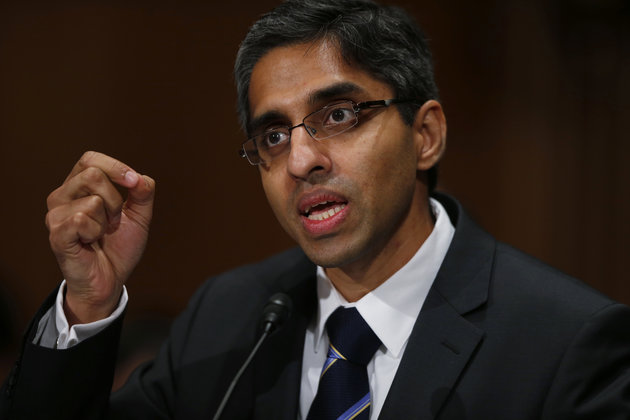The Office of the Surgeon General released “Facing Addiction in America: The Surgeon General’s Report on Alcohol, Drugs, and Health,” becoming the first report of its kind to focus on substance abuse.
According to the report, drug and alcohol misuse are to blame for over 130,000 deaths every year. It also highlights that drugs and alcohol are directly related to crime and violence, translating to costs for the U.S.’s health care system.

Based on previous studies, “Facing Addiction in America: The Surgeon General’s Report on Alcohol, Drugs, and Health” shows how the number of people that suffer from a substance disorder surpasses the number of people diagnosed with diabetes added to the ones diagnosed with cancer.
With severe health implications and burdening costs in care, substance abuse has been labeled as an endemic factor that must be made an issue of concern for the upcoming presidential administration.
Millions of Americans show signs of addiction
The report shows that at least 21 million people in the U.S. abuse some sort of substance, and this does not include those that have not yet been diagnosed with an abuse pattern. One of these eventualities is binge drinking, which was reported by over 66 million Americans in 2015. Treating the consequences of substance abuse include loss of productivity and criminal justice expenses, which add up to $442 billion each year.
One of the proposed objectives is to allow families, educators, and lawmakers to seek out new opportunities to reduce the harmful implications of substance abuse, as there is new information concerning the causes of addiction, categorizing them as neurobiological disorders.
Surgeon General Dr. Vivek Murthy wrote that addiction is a chronic disease of the brain, which goes beyond simple choice or personal flair. Recent findings show that substance abuse causes important changes in how the brain functions, especially in the basal ganglia, extended amygdala, and prefrontal cortex, all of which comprise the brain’s reward system among other functions. Addicts are characterized to be unable to stop using drugs even if they are obviously harmful to their health.
The report also noted that people who use alcohol before the age of 15 are 4 times more likely to develop a dependency later in life, compared to those who start drinking at a later age. This was shown to be heavily influenced by the person’s family environment, where emotional support and social connection are the key factors that drive a person away from developing a substance abuse.
Treatment was one of the key elements addressed by the report, and this is where the issue may be confronted by the government. Dr. Murthy assures that access to treatment must be broadened and that there must be a greater investment in services to deal with substance abuse, allowing more tools and professionals to be added to the available medical care system.
“Rates of relapse following treatment for substance use disorders are comparable with those of other chronic illnesses such as diabetes, asthma, and hypertension,” wrote Dr. Murthy.
How will addiction recovery fare under Trump?
Programs that allow recovery from substance abuse are very different when compared to those treating traditional diseases, seeing that the patient must have constant psychological support to not suffer from a relapse. This calls for the assistance of the patient’s loved ones and acquaintances to eventually regain a healthy way of life. Recovery must be configured according to the patient’s needs and psychological profile, which may explain why only 1 out of every 10 addicts receive appropriate treatment.
Coincidentally, Obamacare provided expanded insurance coverage for people diagnosed with substance abuse disorders. How Trump tackles this issue will be a key point in what Americans expect as his health care policy, as he has already revealed that overall scientific funding would see some cuts.

The report is highlighted as a public health plan with humanitarian implications, seeing that the United States is facing an ongoing opioid and prescription drug crisis. The United States is the largest global consumer of prescription opioids such as hydrocodone and oxycodone, escalating from 76 million in 1991 to over 207 million in 2013. The U.S. consumes almost the entirety of the world’s Vicodin and 81 percent of the world’s Percocet.
Dr. Murthy’s report was drafted following the 1984 surgeon general’s report on smoking and its health implications, which allowed campaigns against tobacco use to gain a greater momentum and drive restrictions to where they stand today.
The latest report was considered a “new call to action” by the surgeon general, as it comprehends important recommendations for elected politicians and the whole spectrum of the medical community. Clinton had promised to spend at least $10 billion to combat addiction, but president-elect Donald Trump has not been clear about his take on drug addiction.
Dr. Murthy is the first Surgeon General of Indian descent, while also being the youngest active duty flag officer in uniformed service. He has worked extensively for HIV/AIDS non-profit organizations and has trained hundreds of medical students in internal medicine.
The full report issued by the Surgeon General Dr. Vivek Murthy can be found here.
Source: JAMA Network
